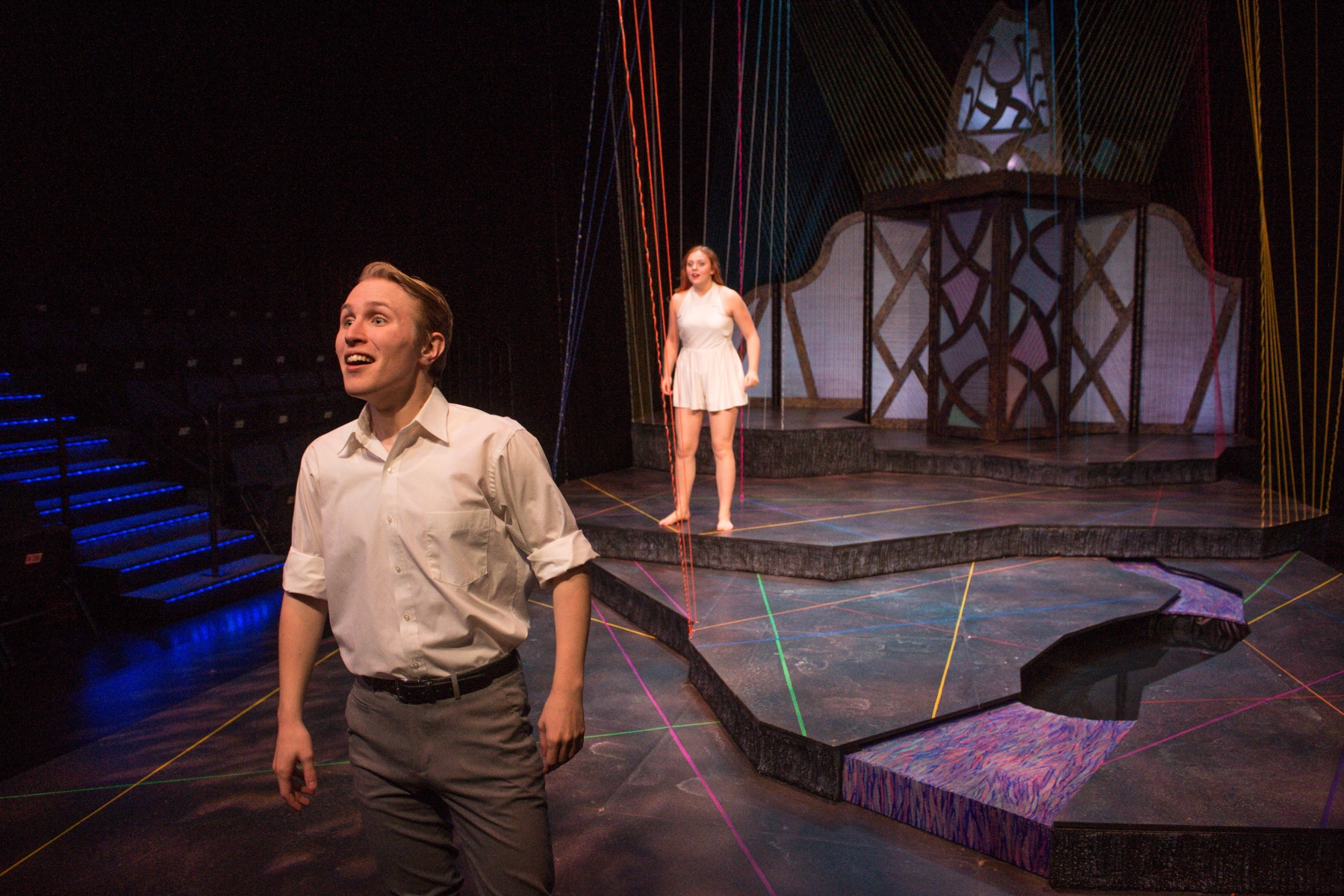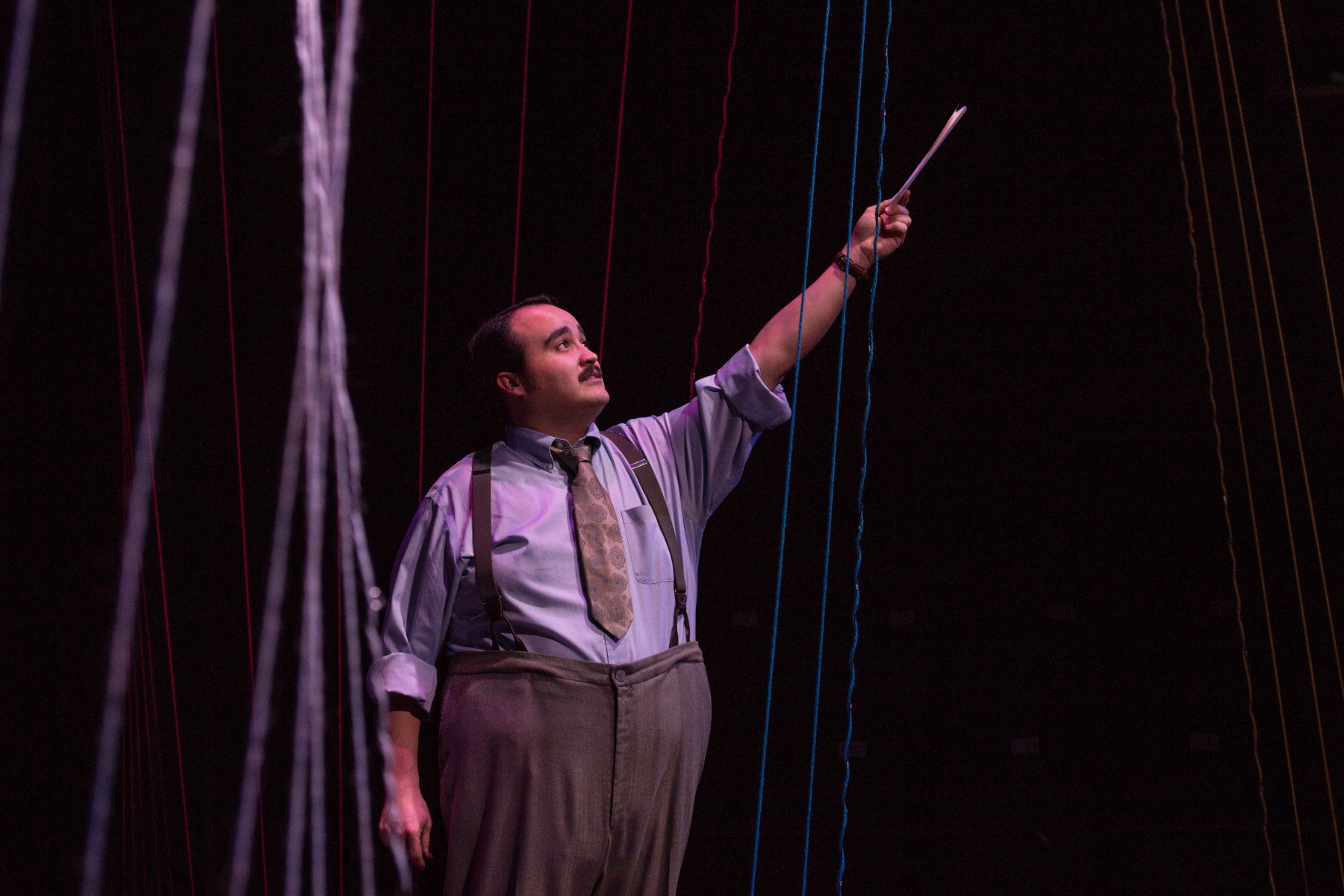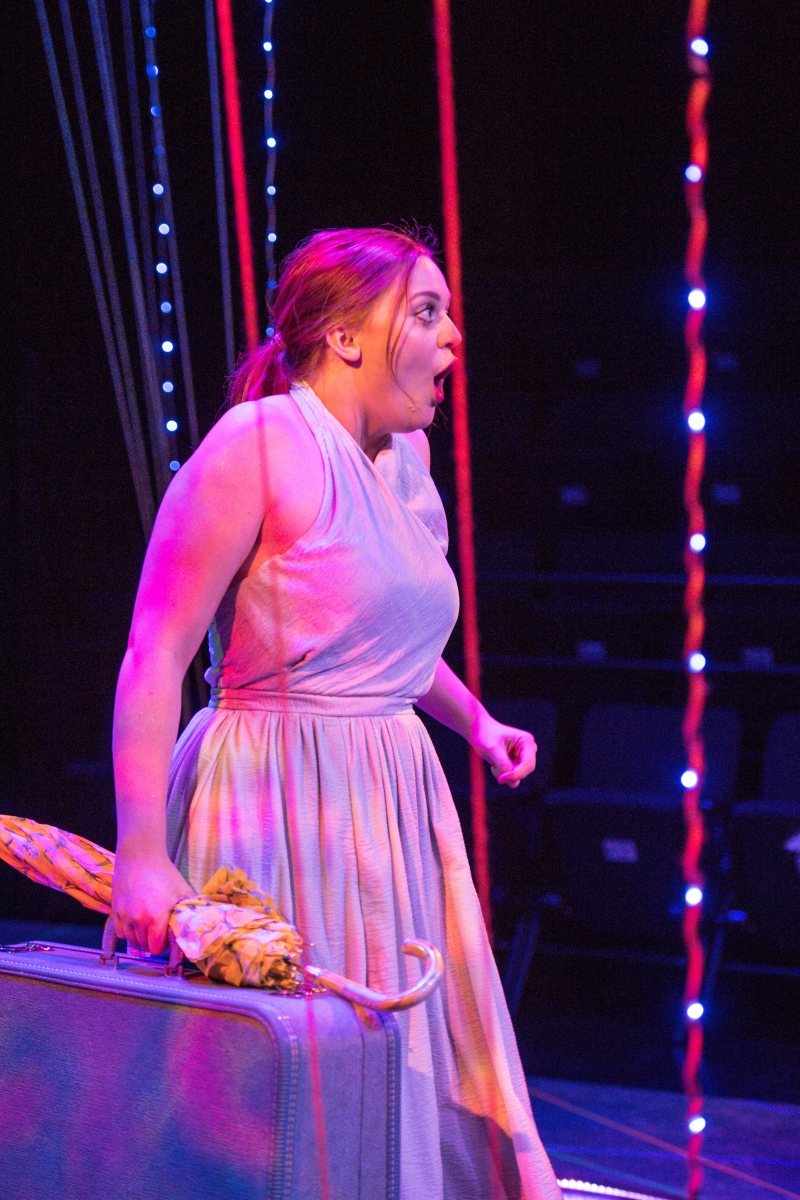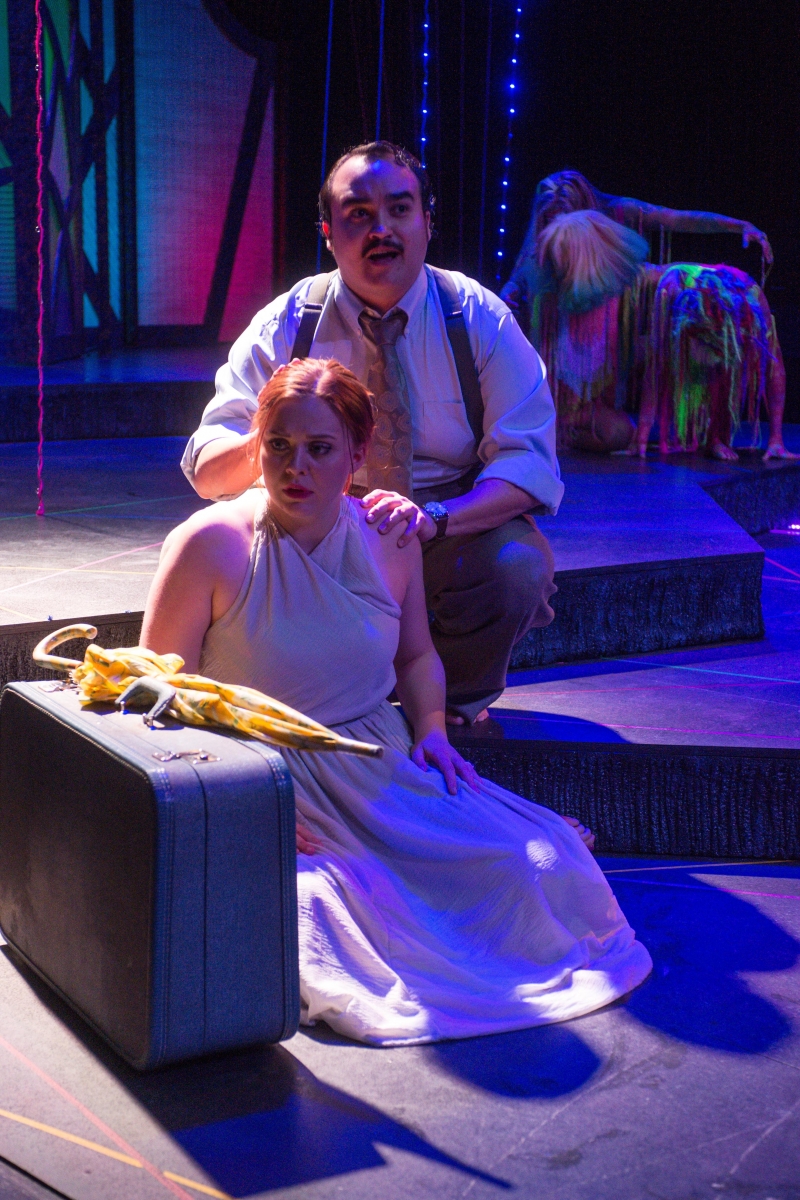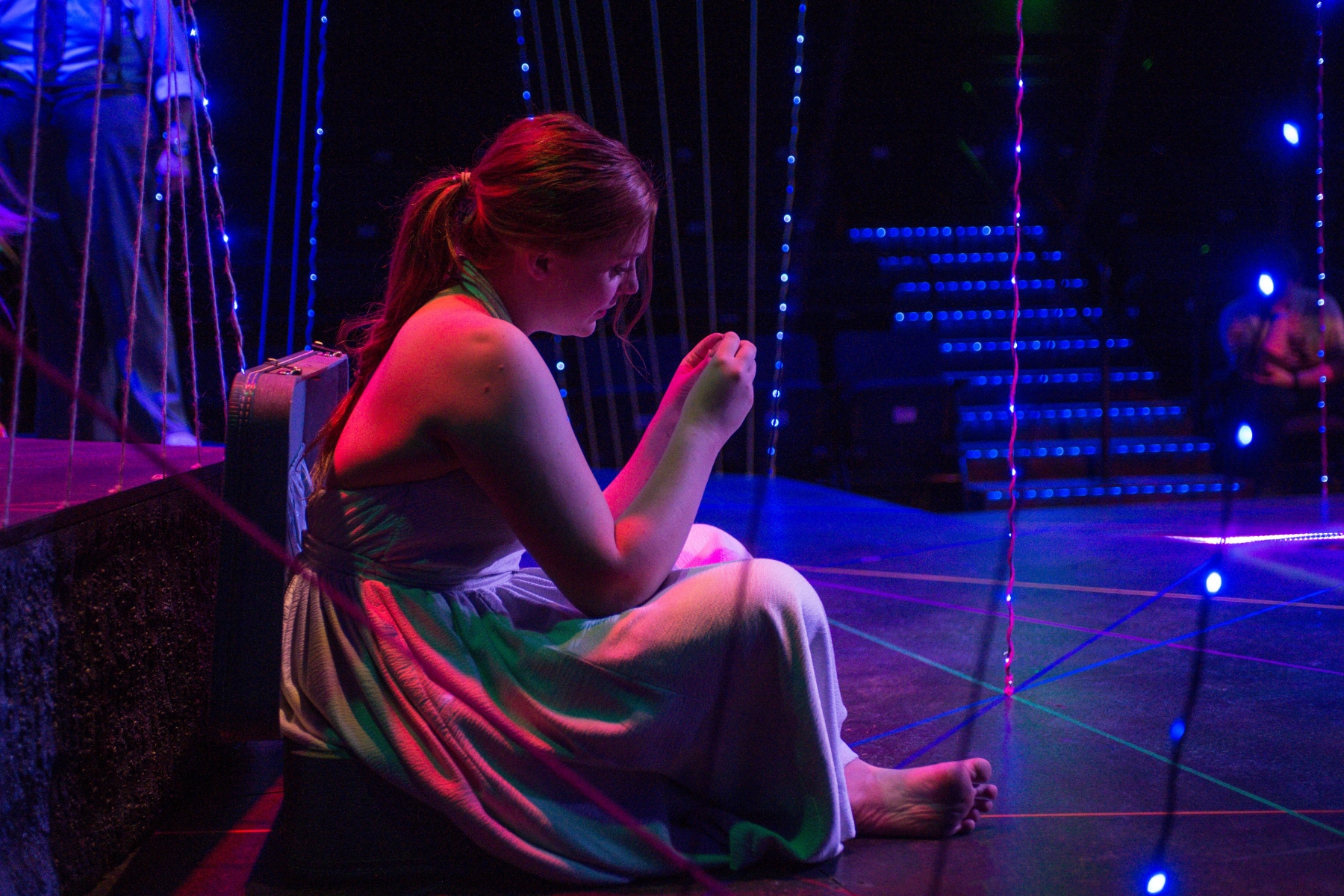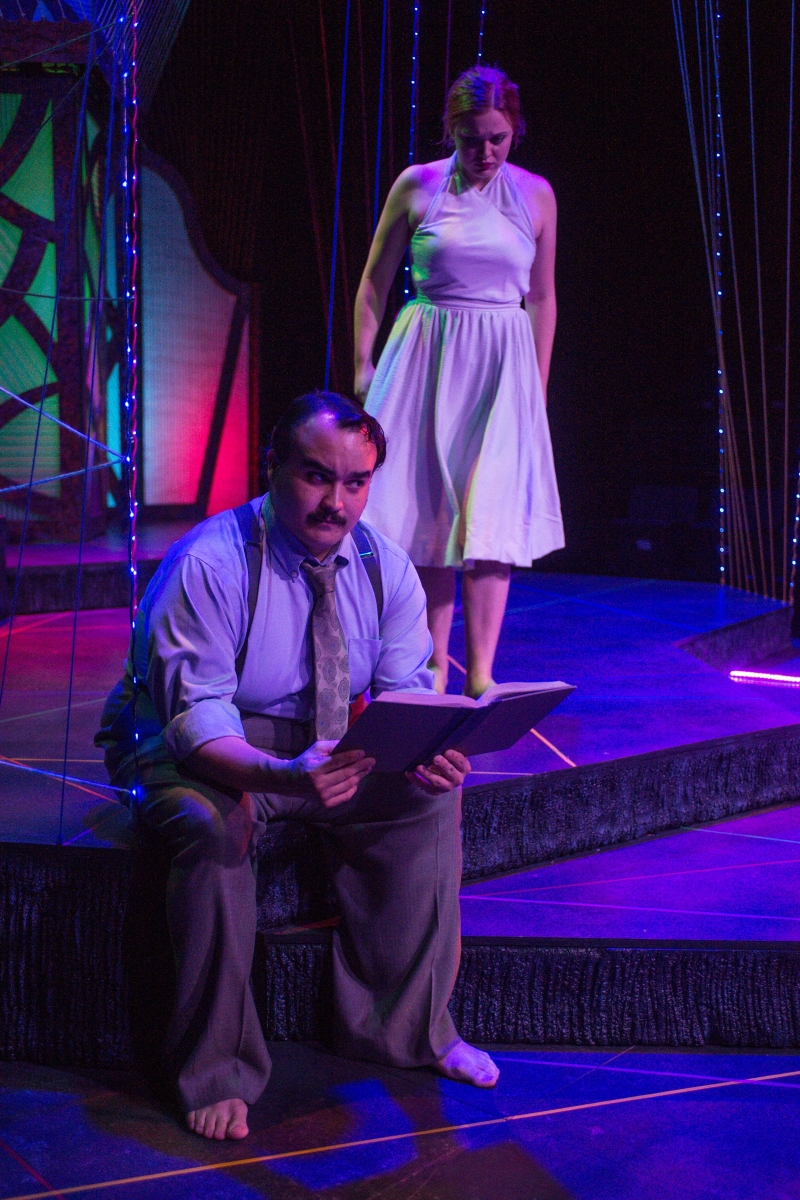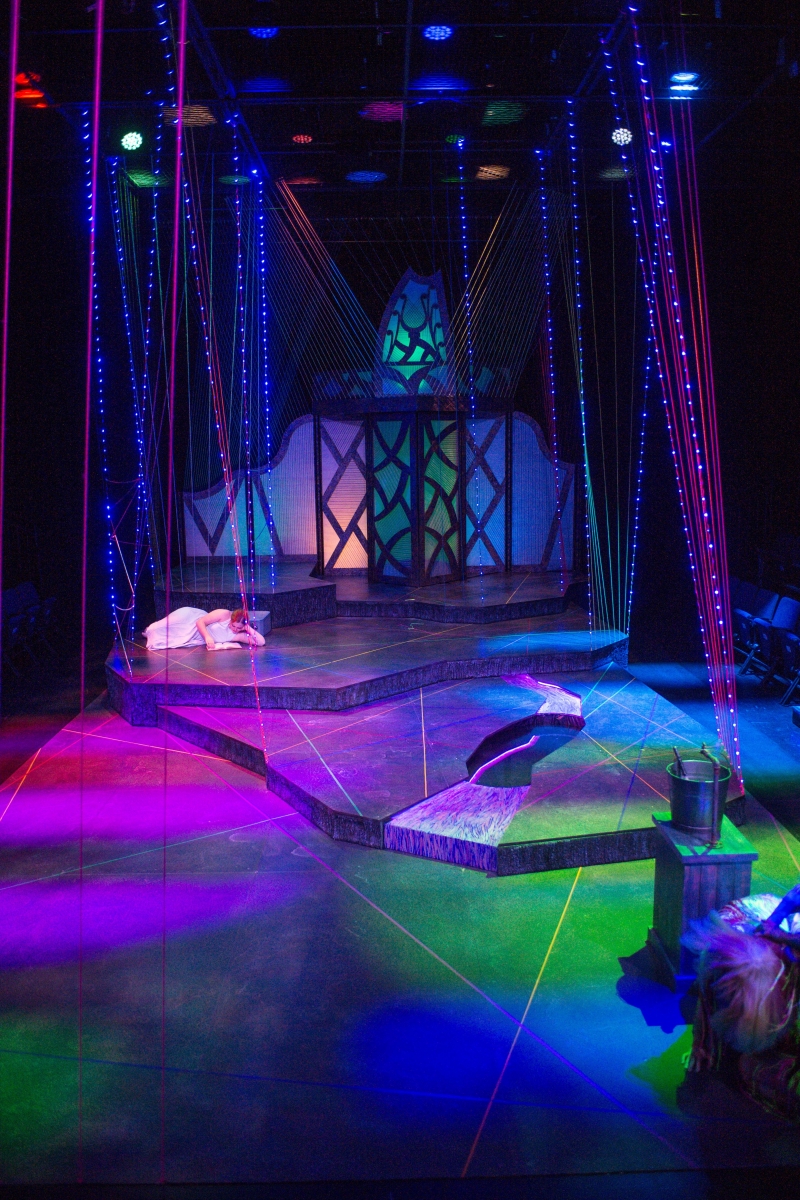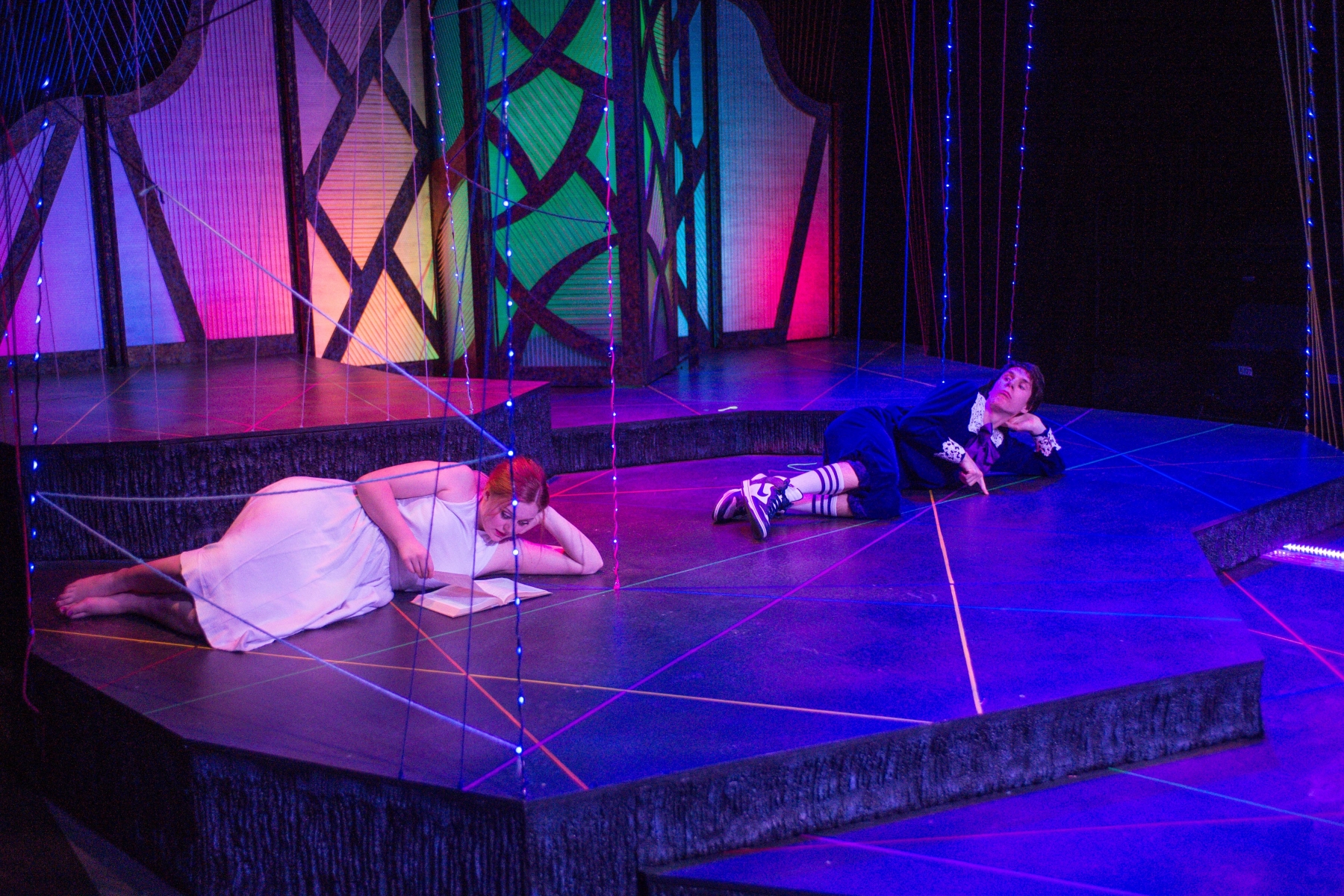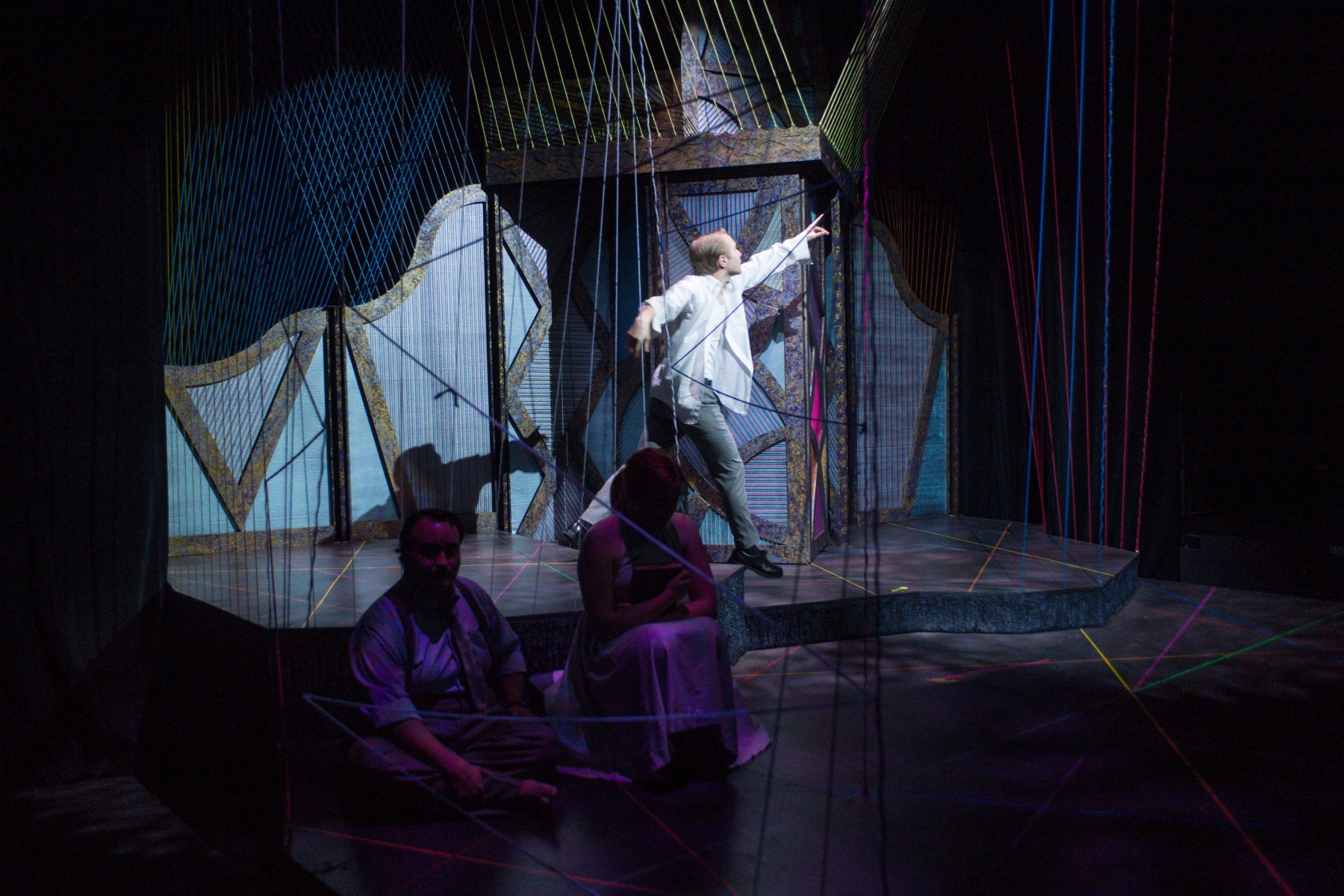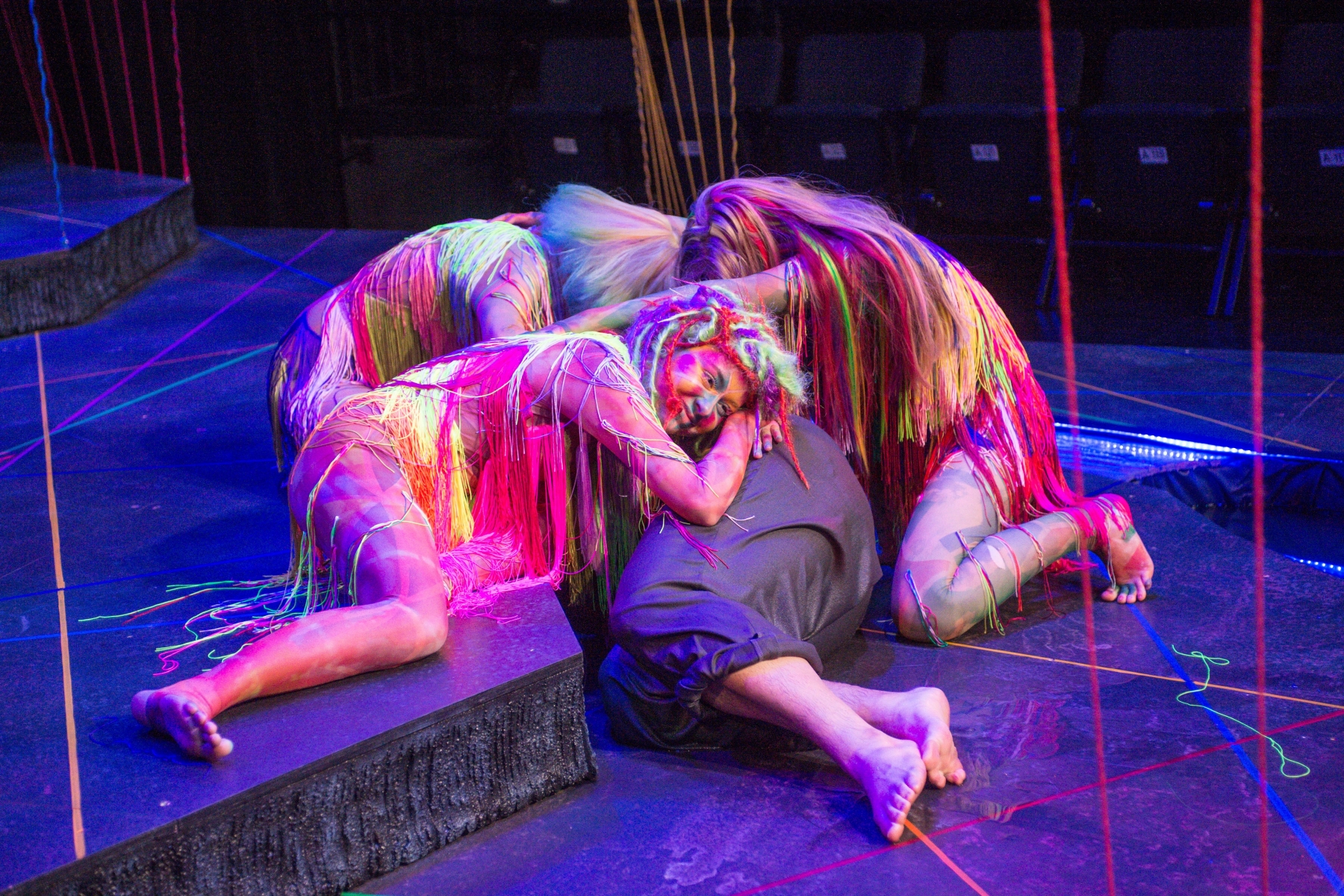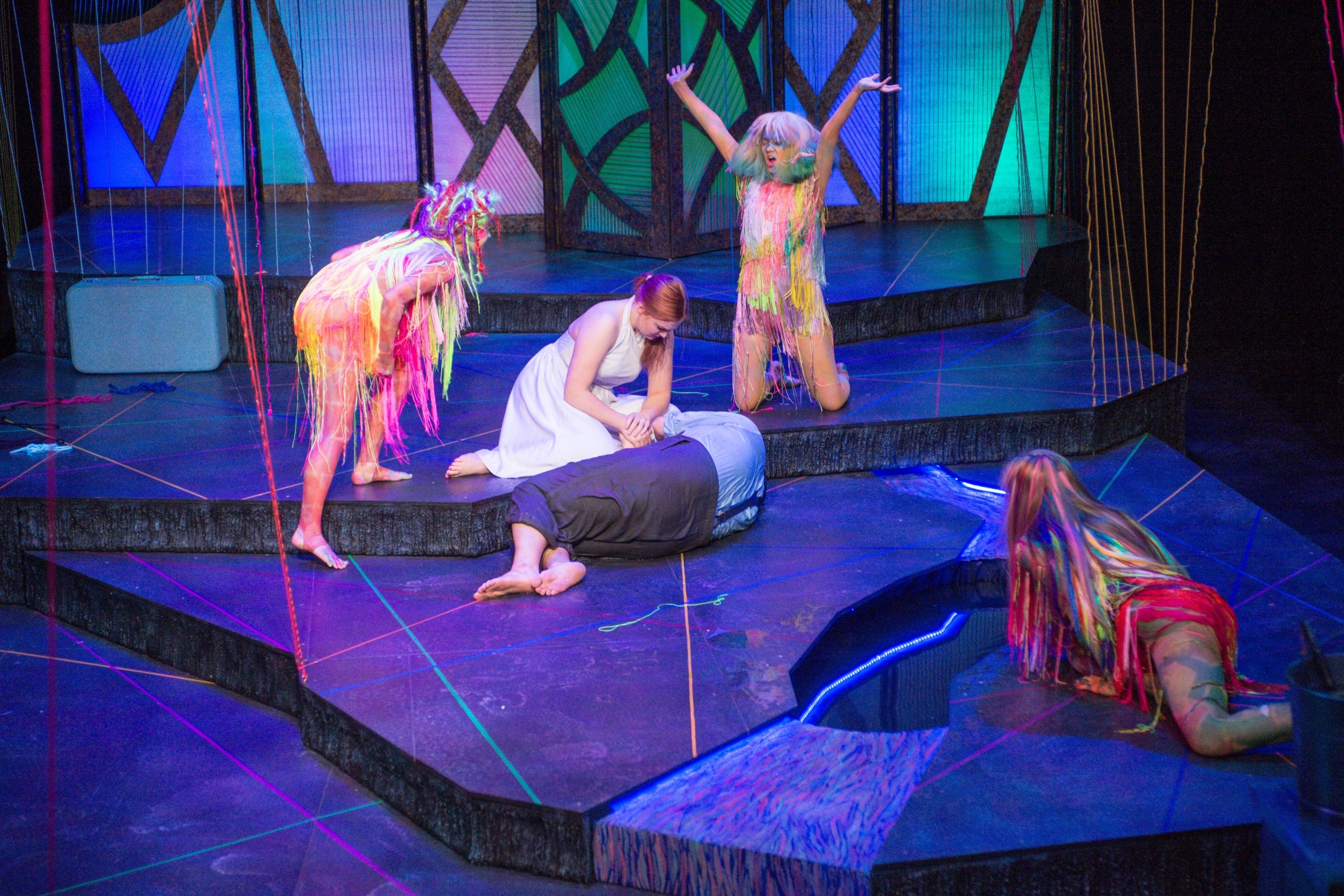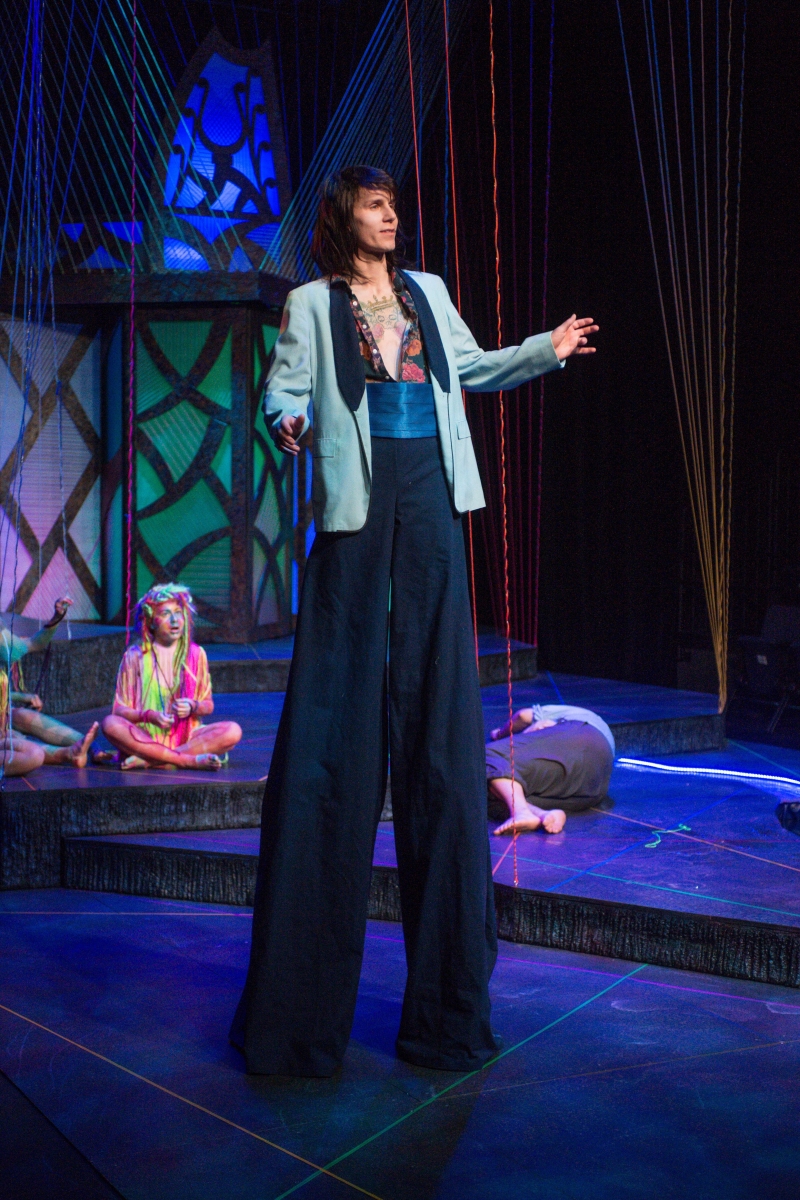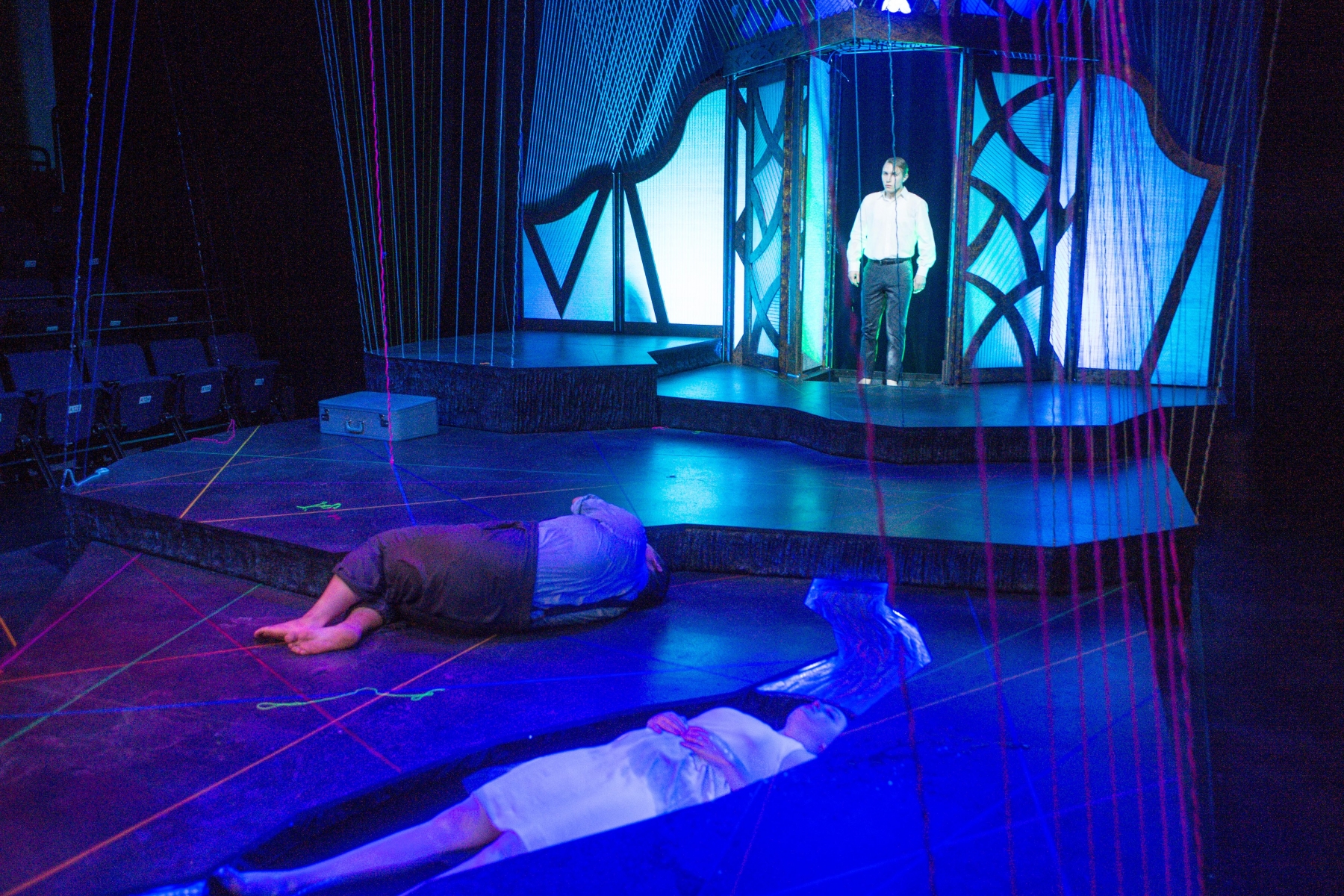| Artistic Staff | Cast |
| Director: Scott C. Knowles | Eurydice: Abigail Nakken |
| Scenic Design: Brian Jude Beacom | Orpheus: Joseph Price |
| Costume Design: Shelby Luke | Father: Henry David Ballesteros |
| Lighting Design: Ruben Pina | Lord of the Underworld/Interesting Man: Maxwell Kunz |
| Sound Design: JD Sargent and Edrea Corvera | Big Stone: Noel Perry |
| Hair and Makeup Design: Phoebe Bock | Little Stone: Alexa Davis |
| Choreographer: Michael Crotty | Loud Stone: Teeq Hill |
| Dramaturg: Alexis Brule | |
| Stage Manager: Faith Read |
Vision Statement
Memory is a fickle thing. It fails and it sustains. It imperfectly creates human relations and defines who we are. Eurydice operates in two worlds, a via negativa of memory: Alive we remember, dead we forget. Eurydice presents an absurd and magical world in which memory is materially realized in all its complexity. It is fluid, shifting, and takes on the properties of water, is symbolically tied to water, or is directly impacted by water. Water is life and washes away memory. Eurydice is lured away from her wedding while getting a drink. Stones are shaped by water and yet seemingly know everything. Orpheus descends through a straw. And the play itself begins on the beach and a desire to jump in. We must explore the meaning of water within the play, it can denote transition, transformation, life, purity, cleansing, wisdom, and mutability. It is not set. It adjusts to its container and travels along the path of least resistance. Memory is ephemeral and delicate within this play and maximizes the nature of theatre as a memory machine, a place we can go to play with memories, create memories, reconstruct memories. Memory makes us who we are, determines who we love, and disappears when we die. Memory and water within this play¾both as symbols and as performance¾contradict themselves. Water is essential in both life and death. Eurydice and her Father both manage to re-member. Memories are at the heart of grief and loss and this play is filled with the grief and loss of loved ones (specifically, wives and husbands, daughters and fathers). At the end of the play, Eurydice is finally not-not with both her father and her husband. They are together and completely and utterly apart. In this show we must make our audience remember, they must remember loss and grief, they must remember love and anger, they must remember the living and the dead.
A short scene from this production can be viewed here: Directing Video
Contact me for password.
